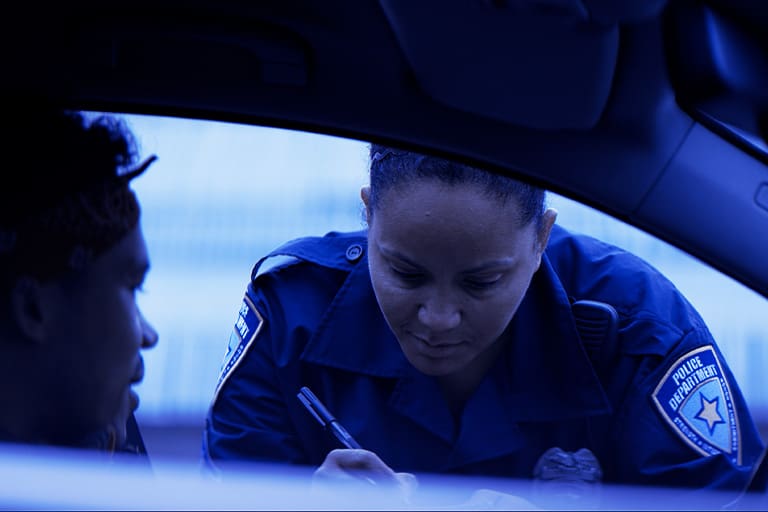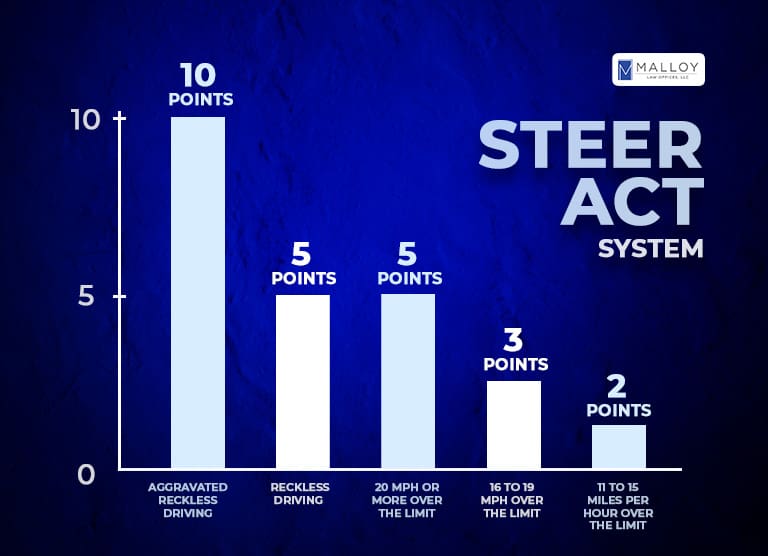The STEER Act and the Changing Face of DC Traffic Enforcement
We here at Malloy Law Offices take a keen interest in the ongoing development of traffic laws in our region. As a personal injury law firm, a significant portion of our business comes from automobile accidents. This is why we try to stress safety behind the wheel and inform the public of the changing face of the law. We don’t like to see people in our community deprived of their hard-earned money, free time, health, and mental well-being due to simple ignorance of the law. As legal professionals, we seek to inform the general public with the same vigor with which we seek to represent our clients. Today’s Malloy Law blog post will explore the recent changes to Washington DC traffic law. Maryland and Virginia drivers will want to pay especially close attention, as the STEER Act may apply to them as well.
The STEER Act and You
As of Tuesday, October 1st, 2024, the Strengthening Traffic Enforcement, Education and Responsibility Amendment Act of 2024 (STEER Act) is law in the District of Columbia. Introduced by City Councilman Charles Allen of Ward 6, the STEER Act is a three-pronged legislative assault on habitual dangerous driving within the district, both by commuters, visitors, and residents. This law sets new standards and procedures for enforcement of traffic offenses and gives the authorities new and expanded powers. But what specifically? Why was this law deemed necessary? Let’s examine and explain the STEER Act in its totality.
An Ugly Flashpoint Sparks Change
While leaving school on September 9th of 2024, twelve year old Paisley Brodie was crossing the street when she was struck by a truck driving recklessly. While the young Ms. Brodie escaped with broken toes and tire marks, DC residents were horrified to discover that the offending driver had been issued over 80 speeding tickets and owed a balance of over $18,000 in fines. Councilman Charles Allen publicized the incident, drawing condemnation and calls for change across social media.
The War on Unpaid Tickets
According to a March 2023 FOIA request to the DC Department of Public Works, the District revealed that $889,187,824 of traffic tickets went unpaid in 2022. Furthermore, data from 2020 and 2021 specified that 75% of unpaid photo tickets had been issued to Maryland drivers.
This leads us directly into the STEER Act’s marquee provision. The DC Attorney General is now empowered to file civil lawsuits against motorists who owe large fines, even if they live outside of the District. Given the costs associated with legal action of this nature, this provision will mainly affect habitually delinquent drivers, who owe tens of thousands of dollars to the District. Those among us with a few unpaid tickets needn’t worry about being served papers, per Councilman Allen.
The Consequences of Recklessness
In the second provision of the STEER act; drivers convicted of criminal reckless driving or aggravated reckless driving may have an intelligent speed assistance system fitted to their vehicle. This device will limit their vehicle’s top speed based on the surrounding speed limits. It can be thought of as fairly similar to the ignition interlock device fitted by court order to the vehicles of drivers convicted of DUI.
A New Points System
In addition to the already existing points system for traffic violations, the STEER act introduces a new points system where habitually negligent drivers accrue points based on the severity of their speeding violations. The system is as follows:
- 11 to 15 Miles Per Hour over the Limit: 2 Points
- 16 to 19 MPH over the Limit: 3 Points
- 20 MPH or more over the Limit: 5 Points
- Reckless Driving: 5 Points
- Aggravated Reckless Driving: 10 Points
10 or more points within 6 months may result in the offending car being booted or towed. Unfortunate victims of vehicle theft will not have to fear the points on their record accrued by the car thief’s reckless driving, as these will be exempted.
How Malloy Law Can Help
If you or a loved one has been the victim of a reckless driver in Washington DC, Malloy Law can help. Our experienced and talented team of attorneys can boast some of the DMV region’s car accident specialists. We’ll fight and win compensation for your lost wages, medical bills, and emotional trauma. Don’t wait, contact Malloy Law Offices today and let’s win your case.




